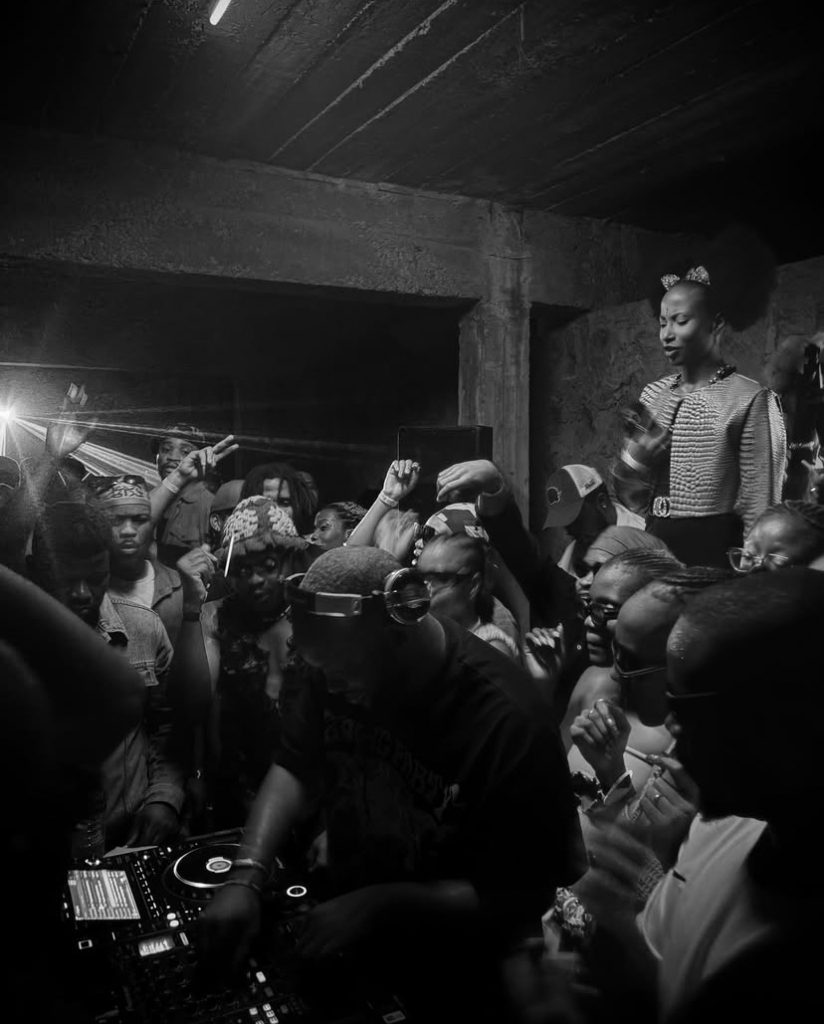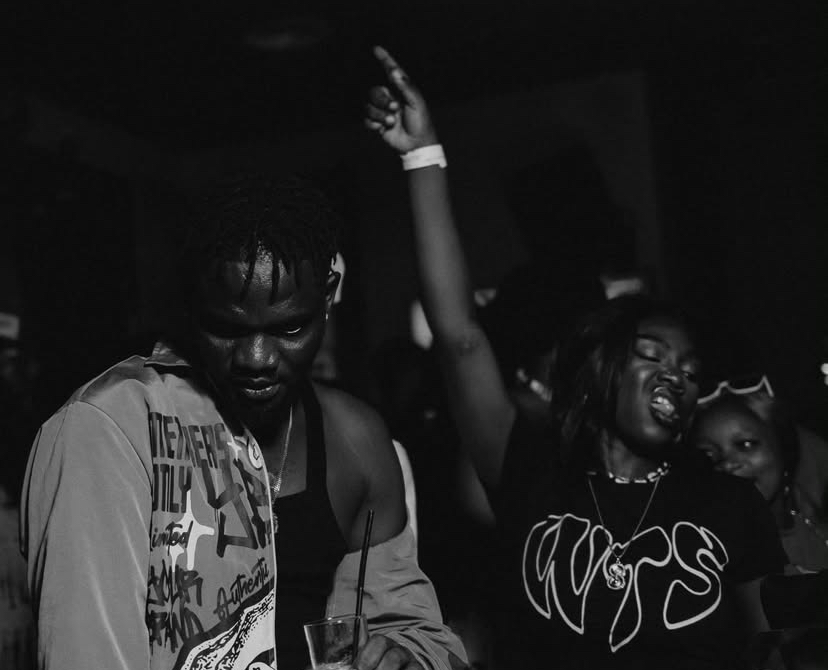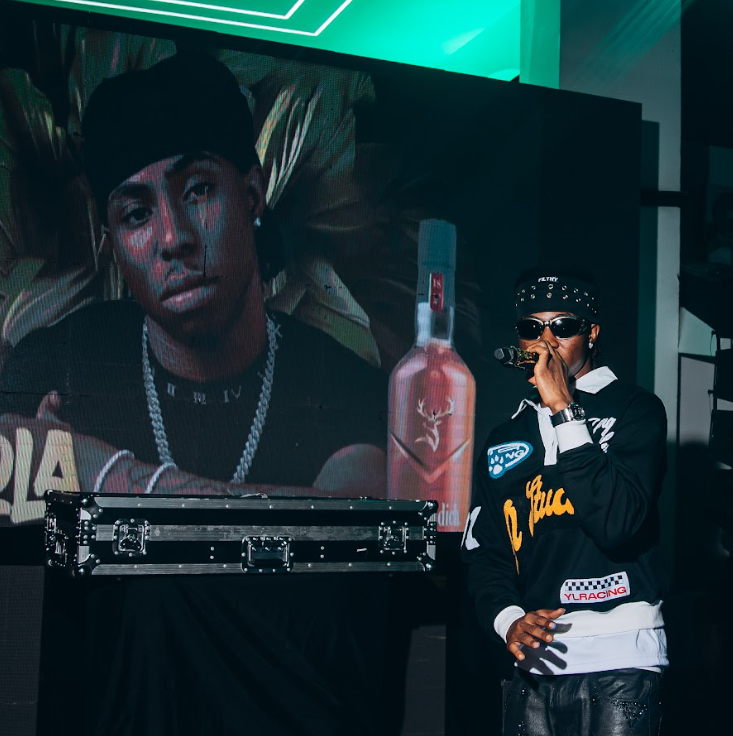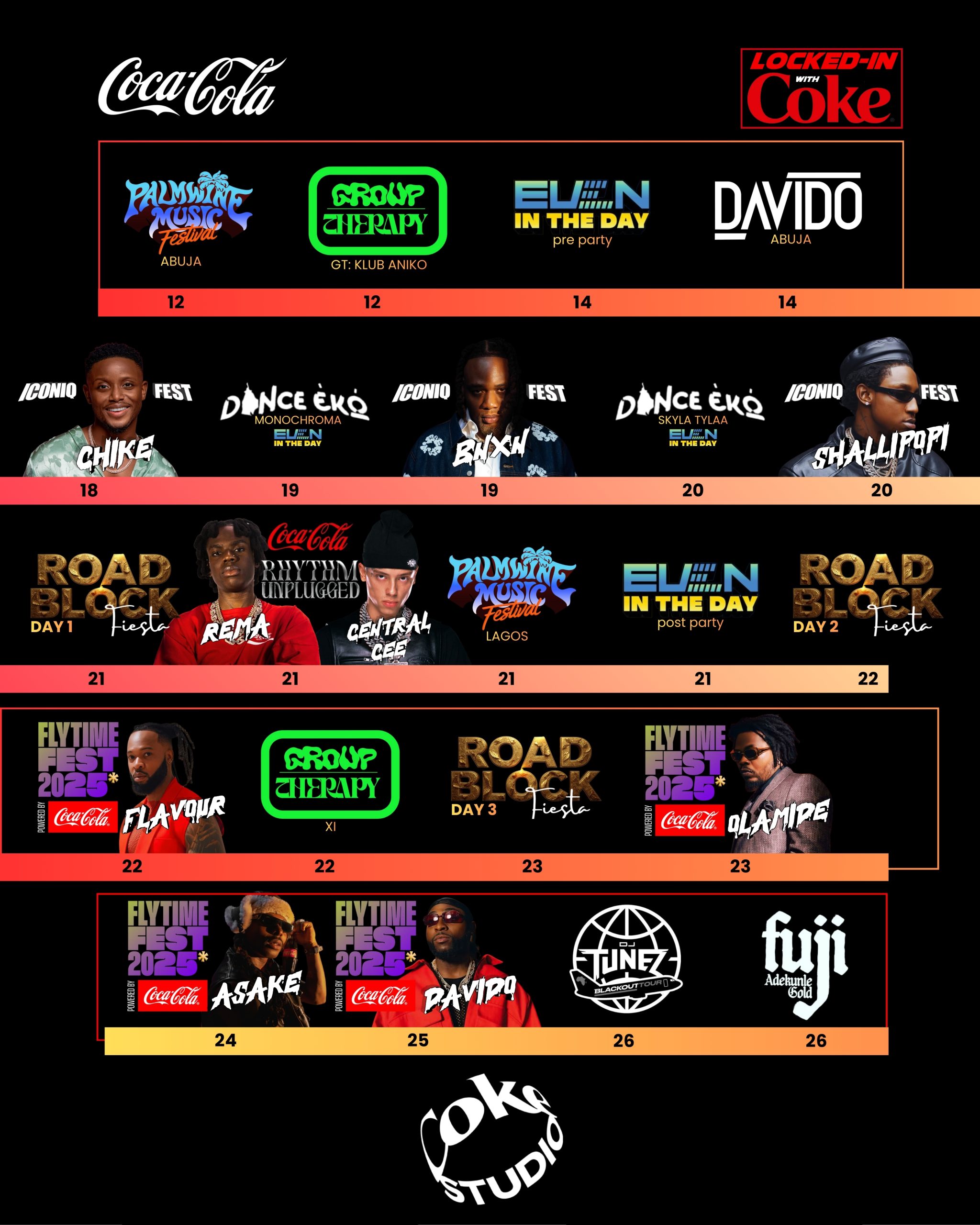If there’s one thing everyone knows about Lagos, it’s that something is going on every single night. Anywhere you turn, you can find booming speakers, flashing lights, and a crowd ready to forget their worries. But what does this mean for the people who make it all happen? For the DJ who makes you dance all night long, the hypeman who keeps the energy up, and the content producer who ensures that the vibe is documented, the nightlife isn’t just for enjoyment: it’s a job, and one that comes with a staggering amount of potential health risks. We spoke with three people to uncover the toll that working in the Lagos nightlife takes on their bodies.
“I’m always outside… but my sleep is on freestyle”
– Nancy, music content producer

As someone who regularly covers events and listening parties, Nancy is no stranger to late nights. “Depends on work, but yeah, I’m outside almost every night,” she says. While she doesn’t physically feel too worn out, she gets migraines now and then, especially from the lights and noise. Mentally, though, it’s a different story. “I’m always drained because I know there’s content to edit the next day.”
She admits that her sleep schedule has taken the hardest hit. “Right now, I just have a sleep freestyle. I sleep whenever the spirit leads,” she jokes. Her recovery routine? “Sleep, and pasta or pizza.” But the mental come-down from events is real. When asked what part nobody talks about, she cites the withdrawal. “When the lights go off, the music stops, and your brain’s begging for another dopamine hit, you’re looking forward to another event.” For those unlucky enough to be substance users, “another opportunity to be high.” She also says she doesn’t take any special health precautions, “it’s just vibes and insha Allah at the moment.”
“Just a bottle of cold water and I’m good”
– N.A.T.E, Hypeman
Juggling an 8–6 at a bank and performing at gigs sometimes up to four nights a week, N.A.T.E. is in the thick of the Lagos nightlife. How does he manage it? “I drink a lot of warm water and green tea to prevent losing my voice, as that has happened before. I’ve got a million-dollar voice loved by the ladies, so I have to protect it,” he says, only half-jokingly. He also tries to nap before events to keep his energy up. During the heaviest season (Detty December), he takes annual leave from his bank job so he can sleep during the day and hype at night.
To protect his health, while he doesn’t follow a strict diet, he keeps active by walking a lot and playing football. Unlike many in the scene, he’s proudly a non-drinker and non-smoker. “People know me in the industry. Just give me cold water at your event, and I’m fine. If I decide to drink, it will be minimal,” he says. If there’s one thing he’d change about nightlife? “Cheaper drinks and more day parties. Not everything has to start at midnight. Many partygoers can’t be out late because they live far away or with their parents, or they’d just rather not be out too late, especially with the current insecurity.”
“You have to be extremely deliberate”
– Abiodun, DJ

For Abiodun, who also balances a full-time job with DJing, it’s a constant tug-of-war. “If I have a late set, I usually only get about three or four hours of sleep before I have to clock in,” he says. While he only takes about two to three gigs a month, the impact on his well-being is clear. “This line of work definitely prevents healthy habits and promotes unhealthy ones like skipping meals or eating really late. You have to be extremely deliberate to find any sort of balance, like not drinking too much.”
Physically, he says he’s tired all the time. He’s been meaning to get earplugs to protect his hearing, but hasn’t gotten around to it yet. His recovery routine consists of a day off the grid: “going to a friend’s house to decompress, eat, sleep, gist, and stay off my phone.” He’s also no stranger to burnout, especially when planning big events like the December edition of Ile Ijo. His one wish for nightlife culture? “That people would just come to have a good time, with less ‘packaging’.”
“I feel stressed, I look stressed.”
– Diamond, Club Hostess
Diamond works five nights a week as a hostess at a Lagos nightclub, and according to her, the strain is more than skin-deep. “I sleep during the day, but it’s never enough. I always look tired. I have eye bags, and I feel weak,” she says. Her shifts can run till the early hours of the morning, and recovery is often out of the question.
While she doesn’t describe her job as unsafe, she admits the physical impact is constant. “My eating habits are worse because of the job. Because I eat late, my tummy constantly looks bloated,” she says. “Health-wise, I feel stressed, look stressed, and maybe even sick sometimes.” To wind down after a shift, she keeps things simple. “I take my shower, I pray, and I try to get good, uninterrupted sleep,” she says. Still, it’s clear that the work comes with invisible sacrifices.
Emotionally, though, she feels surprisingly resilient. “I’m a people person,” she says. “I enjoy talking to guests.”
But if she could change one thing about nightlife culture, it would be the compensation. “Increase the salary,” she says firmly. “Staff are sacrificing a lot — their health, family, peace — just to do this job.”
So, What’s the Cost?

With loud music, limited sleep, overstimulation, inconsistent meals, and emotional exhaustion, the health effects might not always show up immediately, but they do pile up over time. Nightlife work demands high energy without necessarily offering time for recovery. Most of our respondents mentioned the same things: poor sleep, missed meals, and mental fatigue. The thrill of a great event might be high, but the body still pays the bill.
From a medical perspective, these habits raise major red flags. “Lack of sleep messes with everything you can think of: your mood, memory, immune system, even your weight,” Dr. Temitope (who is something of a raver herself) says. “And no, sleeping during the day does not offer the same benefits as sleeping at night.” As for food? “Skipping meals or eating heavy right before bed can mess up your metabolism and sleep quality. Over time, this builds up and can lead to digestive problems, weight gain, and fatigue.”
For those who engage in substance use while partying, Dr. Aisha emphasises what we’ve all already heard about the dangers. “There’s no way to spin it, smoking is bad. Apart from damaging lung function, it’s also a risk factor for every type of cancer. Constant alcohol consumption is also terrible; it damages essential organs like the liver and kidneys, as well as contributing to the risk of developing several other diseases.”
She also warns about loud music. “Without ear protection, DJs and hypemen are at risk of noise-induced hearing loss due to constant exposure to noise of about 85 decibels and above. It’s gradual, and it’s permanent.”
And the mental health part? Dr. Temitope says, “Burnout is a real clinical issue. It can lead to depression, anxiety, poor decision-making, and in the long run, it affects everything from relationships to job performance.”
Final Thoughts
In the end, maybe the people are what make the nightlife scene so magnetic. They’re running on passion, grit, and gallons of water (or pasta, or green tea). So, the next time you’re out dancing till 4 a.m., spare a thought for the folks working behind the scenes, and maybe advocate for a few more day parties too



